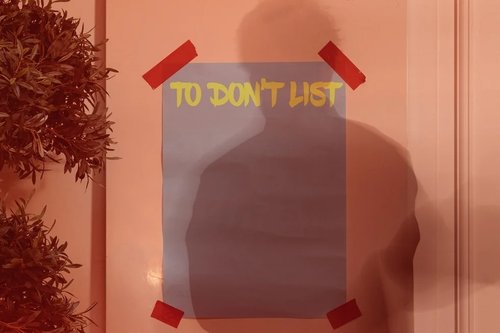Maximizing your references: Turning recommendations into opportunities
Dec 19, 2023
6 mins


Freelance journalist and writer
Would you rather a recruiter check out your Instagram profile, or ask you for a reference from a previous employer? With almost 90% of employers admitting they look at candidates’ social media profiles, references seem to have taken a backseat in terms of relevance and popularity. But are they completely obsolete? Interestingly, despite the digital shift in recruiting habits, many employers still value references as a crucial step in the hiring process.
However, it’s no secret that using friends and family to portray former managers and colleagues is common practice on the job hunt. The temptation to ask someone to vouch for you is real, but don’t fall into the trap of fake references! While amusing, and somewhat easy to pull off, false references don’t convey the essence of securing a meaningful reference.
Handling a reference request is a strategic matter, especially considering that approximately 34% of job candidates are typically removed from the hiring process based on reference check results. So, what steps can you take to enhance your chances of landing the job when references come into play? We chatted with TikTok creator HR Molly, an HR consultant based in Oregon, about what to do before, during, and after a reference request from an employer to make you the best candidate out there.
The new approach to references
With current changes in the recruitment landscape such as the growing dependence on digital platforms and professional networks, the role of references is regarded fairly differently than it was a couple of years ago. Indeed, the process has changed on both sides—on one hand, candidates find it easier to mold references in their favor, while on the other, employers face greater challenges in discerning the legitimacy of the references provided.
“With the continued development of technology, many parts of the verification process can be faked. People can arrange for friends or family to pretend to be references, educational degrees or certifications can be created or purchased rather than earned, and candidates may believe they can get away with providing inaccurate information,” HR Molly explains.
Organizations have been forced to redefine their approach to references while exploring more creative and effective ways to carry out candidate background checks. “Some companies or entities have become more thorough and use more than one way to verify someone’s background and previous performance. Others have stopped requesting references and instead conduct background verifications using validated sources,” says Molly.
Given the unpredictable nature of these situations, it’s always better to be prepared and have a couple of references ready. “Entities may still check references in order to do their due diligence as an employer. For this, I recommend being able to provide references in case you are asked,” says our expert.
It all depends on the sector
HR Molly points out that the significance of references in the eyes of employers often varies significantly based on the industry. If you’re targeting opportunities in the public sector, be prepared for a higher likelihood of receiving reference requests. “City or government work seems to contact references or use information from references more than other industries. These positions are paid for with tax dollars and involve work that impacts the community. It could be considered irresponsible to hire people for public work using public funds and not complete an adequate review of their past,” she says. “If someone in a public role ends up becoming an issue and the public learns a thorough review during the hiring process wasn’t completed, it can lead to mistrust and public outcry.” Another industry still heavily relying on references is healthcare, she adds.
The private sector, however, works a bit differently—and it’s usually up to the organization as to how they decide to perform the background check. “Individual companies may or may not request references and contact them, and they may do this with a phone call, email, or electronic survey,” says HR Molly. So what can they ask about? “Many companies will verify a candidate’s educational background and previous employment to determine if any information on the resume and/or application is inaccurate and to validate the experience and education of the candidate.”
Keep in mind before you ask
Curious about what your references might be asked about? HR Molly highlights some key points that could come up during a reference check:
- Crosscheck of employment dates and titles
- Attendance and performance
- Behavior with other colleagues
- Whether they would hire you back.
“When speaking to a reference, the potential employer often wants to attempt to assess if the employee performed and behaved adequately, had good attendance, acceptable integrity/trustworthiness and if the employer would hire them back,” she further explains. “If the employer wavers on any of these points, it can cause doubt and concern for the potential employer.” Indeed, research indicates that 34% of job candidates are removed from the hiring process due to the results of such reference checks.
When asking for a reference, preparation is key. But your reference contact is not the only person you should prep—you should also make sure you’re well-prepared yourself. You should have all the answers to the topics mentioned above ready before you go into interviews, just in case. “In addition, candidates should be ready to answer questions about their background, such as gaps in work, career or industry changes, or lack of experience,” says HR Molly.
Making your reference pick
Requesting references can feel daunting and even a bit embarrassing, but it shouldn’t be. “It’s common candidates don’t expect to be asked for previous supervisors or managers as references and often aren’t comfortable listing any previous supervisor or manager as a reference,” says HR Molly. “If this is the case for any readers, I’d recommend working on maintaining adequate relationships with their current leaders and periodically reflecting on their behavior, performance, and attendance knowing it may come up with a hiring team for a role they want in the future.”
To help you make this process a bit easier and more pleasant, let’s start by narrowing down who you should ask to be your reference. “Ideally, your references should include a few supervisors or managers you’ve had, as well as your coworkers,” explains HR Molly. This approach offers employers a broader perspective of you as an employee. Managers can elaborate on your contributions within a larger team, your overall performance, and your approach to tasks. On the flip side, colleagues can contribute valuable insights into your teamwork dynamics, providing employers with a glimpse into your personality.
Have you recently graduated college and you’re fairly fresh on the job market? Don’t worry, most companies will understand that many references are unlikely in cases of entry-level jobs. “If someone has very little work experience, they should be ready to provide other professional contacts or sometimes previous teachers or professors,” explains HR Molly. You also shouldn’t worry if you don’t want your current employer to find out you’re job hunting. “It seems generally accepted that a candidate won’t have to provide their current manager or supervisor,” she says.
Asking for a reference
Once you have your list of referees to contact, you need to make sure you communicate your favor clearly and effectively. You can use the script below, either in an email or over the phone—and if you want to go the extra mile, can always reach out to them to go for a coffee!
Hi [name],
I hope you’re doing well. I’m contacting you as I’m recruiting for a [role] at [company[ at the moment and I’ve been asked to provide references.
I had a great experience working with you at [previous company] and I’d love to include you as a reference. I think you’d be able to accurately describe the type of work I was doing, explain the type of team member I am, as well as give your opinion on my performance.
I’m happy to share the job posting and my resume for your review for more context. Let me know what you think.
Thank you and I’m looking forward to your reply.
Kind regards,
[Your name]
Sending your references
While the details needed for a reference are typically outlined in the employer’s reference request, if not specified, make sure to provide the following information for each reference:
- Name
- Position or title
- Company or organization
- City and state
- Phone number
- Email address
How to make the most out of a reference
To wrap up, here are HR Molly’s key recommendations to help you make the most out of your reference:
- Ask ahead: “When you leave a role, you can ask your boss if using them as a reference in the future would be possible. You can also offer to be a reference for your boss.”
- Make it personal: “Ask for a personal email and exchange personal emails in case you need to reach each other about being a reference. People don’t change email addresses as often as phone numbers.”
- Be selective and strategic: “Not all jobs end up being a good fit for each person and that’s to be expected. However, if a potential employer wants references and you don’t feel any previous bosses or colleagues would recommend you, it can be a problem.”
- Leverage social media and make your references last: “Having visible references and recommendations on LinkedIn, for example, can also be beneficial. Recruiters and hiring teams can see those and they often appear favorable as the site has some levels of validation that are required in order to leave those reviews.”
Photo: Welcome to the Jungle
Follow Welcome to the Jungle on Facebook, LinkedIn, and Instagram, and subscribe to our newsletter to get our latest articles every week!

More inspiration: Applying for jobs

Should you job hunt over the holidays? Tips to beat the new year rush
Searching for a new job to start fresh in 2025? The holiday season might be the right time for you to start the process.
Dec 09, 2024

Introverts & extroverts: Strategies to ace your interview
Job interviews can be tough, whether you're a social butterfly or a quieter introvert. The key to standing out is being yourself.
Aug 20, 2024

Should you be scared of the ghost job trend?
Have you ever been ignored after applying for a job? You may be a victim of the ghost job trend.
Jun 12, 2024

Lost in translation: Decoding bizarre job descriptions
“Candidates with no sense of humor need not apply.” Um …
Jan 25, 2024

Nailing your job search: Writing a to-don’t list for success
Don’t want this, don’t want that … Writing down things you want to avoid in a new job could be your job-hunting key.
Jan 18, 2024
The newsletter that does the job
Want to keep up with the latest articles? Twice a week you can receive stories, jobs, and tips in your inbox.

Looking for your next job?
Over 200,000 people have found a job with Welcome to the Jungle.
Explore jobs